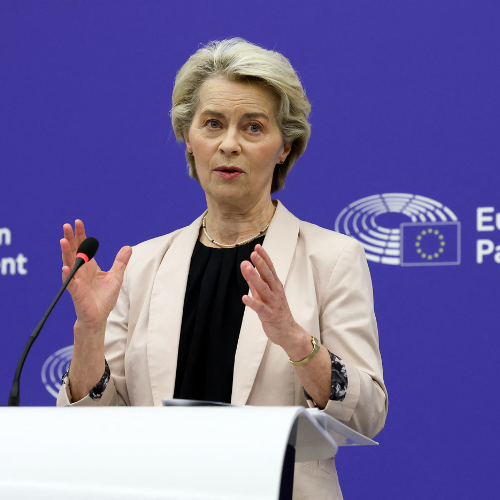The European Union (EU) has taken another firm stand against Russia as the war in Ukraine continues. In a bold move, EU ambassadors have agreed on a 15th package of sanctions targeting Russia’s secretive “shadow fleet” of tankers and Chinese companies believed to be making drones for Moscow’s military operations. These sanctions aim to disrupt Russia’s ability to sustain its war effort and hold accountable those aiding it.
The new measures were announced by diplomats and officials, with a formal approval expected from EU foreign ministers in the coming days. Once finalized, the sanctions will tighten the pressure on Russia, which has already faced several waves of EU penalties since its invasion of Ukraine in February 2022.
Targeting Russia’s Shadow Fleet and Supporters
At the heart of the new sanctions package is Russia’s so-called “shadow fleet.” This term refers to a group of secretive tankers from third-party countries that help transport oil and other goods to keep Russia’s economy running despite international sanctions. These vessels often operate with little transparency, turning off tracking systems and using complex trade routes to avoid detection.
The EU’s latest sanctions will impose restrictions on vessels from countries outside the bloc that are suspected of assisting Russia’s war in Ukraine. By targeting these ships, the EU hopes to close loopholes and make it harder for Russia to bypass previous sanctions.
In addition to the shadow fleet, the sanctions package also focuses on Chinese companies accused of producing drones for Russia’s military. These drones are believed to be used in the conflict to gather intelligence and carry out attacks. By targeting these firms, the EU aims to cut off key technological supplies that help fuel the war.
Who’s on the List?
The sanctions package will add close to 30 companies, over 50 individuals, and 45 tankers to the EU’s existing blacklist. People and organizations placed on this list will face travel bans and asset freezes within the 27 EU member countries. This means they cannot visit or move their money within the EU.
Currently, there are already 2,200 individuals and entities on the EU’s sanctions list, including Russian officials, oligarchs, and businesses tied to the war. The newest additions to the list will further expand the EU’s efforts to isolate Russia economically and politically.
Russia’s Shadow Oil Fleet Faces EU’s New Sanctions Plan
European Commission President Ursula von der Leyen welcomed the measures, calling them a significant step in targeting Russia’s shadow fleet and its supporters. The EU has made it clear that it will continue to pressure those enabling Russia’s aggression, no matter how far-reaching the networks are.
Special Exceptions for Some Countries
While the sanctions package is tough, there are some exceptions. The Czech Republic will be allowed to continue importing certain Russian oil-based products for an additional six months. These imports primarily come through Slovakia. This temporary extension is meant to help the Czech Republic transition to other energy sources without immediate disruptions to its economy.
Such exceptions highlight the balancing act the EU faces in imposing sanctions that hit Russia hard without causing too much harm to its own member states.
The new package will also add new names and entities to the sanctions list, as the EU continues to expand its efforts to weaken Russia’s ability to sustain the war. The sanctions, however, are not yet in effect. EU foreign ministers are expected to give their final approval on Monday before they can be formally adopted.
What’s Next for Russia and Its Supporters?
The EU’s 15th sanctions package is another blow to Russia’s ability to finance its military operations in Ukraine. By targeting the shadow fleet, Chinese drone companies, and other key entities, the EU is sending a strong message that it will not tolerate actions that support the ongoing war.
These measures come amid ongoing international efforts to pressure Russia into halting its invasion of Ukraine. While it remains to be seen how effective these sanctions will be, they represent another significant step in the EU’s strategy to cut off Russia’s lifelines and hold its allies accountable.


